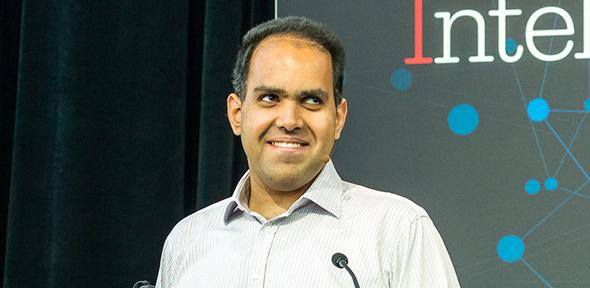
This year’s Annual Disability Lecture will consider how inclusive design principles and developments in technology are mutually supportive.
With the increasing popularity of smart technology and the emergence of artificially intelligent software, could society become more inclusive in the digital age?
Mr Saqib Shaikh (pictured), a visually impaired software engineer at Microsoft, will explore the answer to this question when he delivers the University’s 14th Annual Disability Lecture next month.
In his talk, ‘Innovating Towards a More Inclusive Future’, Mr Shaikh will explain how his employer is working to empower disabled people by developing specialist software, and how the design principles behind this work might be applied to mainstream technology.
He will draw on the success of the company’s ‘Seeing AI’ application, which translates photos of people into speech by describing what they are doing, how old they are, and what emotions they are expressing. The software can be installed onto smart-glasses, allowing visually impaired wearers to better understand their surroundings.
Mr Shaikh has worked at Microsoft for 11 years and has used his experience of living with a disability to help make the company’s software more accessible. With his guidance, programmes including Office, Skype, and Windows have been developed in a way that makes them compatible with screen-readers.
His lecture will take place in the Palmerston Room at St John’s College on Thursday, 23 March at 5.30pm. It is free to attend and details of how to register are available here.
